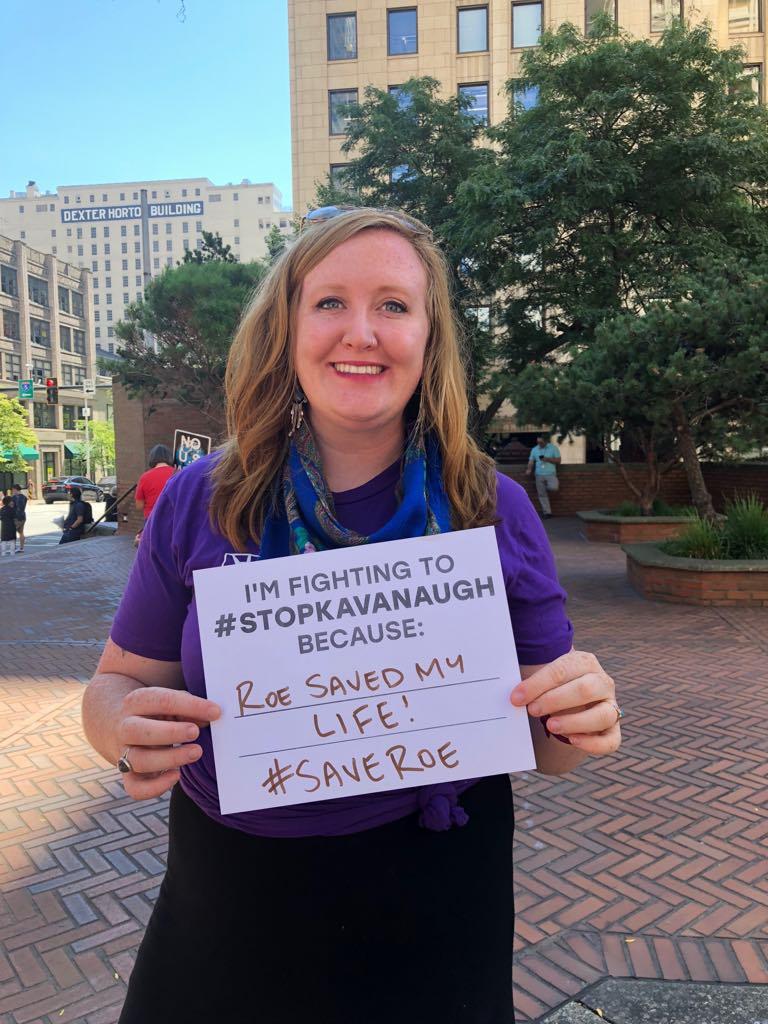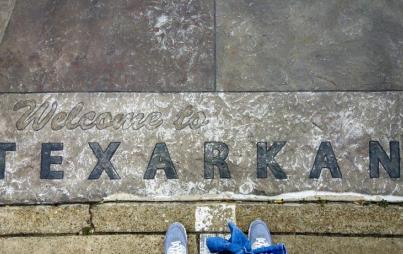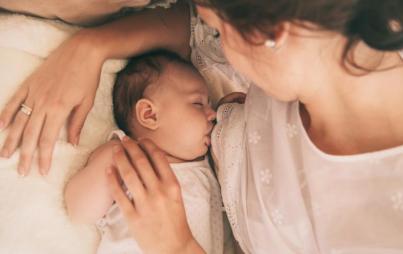
Photo courtesy of the author.
When I moved to Seattle, Washington, from the rural south, I was stoked. Finally, I was leaving the Bible-thumping radio stations and pro-life billboards behind. A new life in a progressive city lay ahead, and the feminist future I envisioned for myself kept me high on optimism for weeks after my arrival. My rose-colored glasses faded fast when I got pregnant by accident.
I felt incredible grief — not because I lost a pregnancy I never wanted, but because I felt betrayed by the healthcare system I trusted with the most important decision of my life.
My partner and I worked ourselves ragged every day to bring home just enough money to pay the bills. We had big dreams for our bright future, and a family of our own was part of that, but not yet. We knew we wouldn’t keep the pregnancy.
There was no hemming and hawing about the decision. I felt relieved. At least I lived in a pro-choice state where Roe v. Wade was codified into state law way back in 1991.
Surely, I’d have a much easier time accessing abortion here than I would have back in the south, right? Not quite.
I went to my primary care provider to figure out my next steps.
“I’m pregnant,” I told my doctor, and asked her about getting an abortion, an ultrasound, and a blood type compatibility test. I guessed I was about five weeks along, which was early, but not too early to know if the pregnancy was dangerous. The ultrasound could tell me if the pregnancy was ectopic, which is a potentially life-threatening condition in which the embryo attaches outside the uterus. The blood test would confirm whether or not the fetus and I shared the same blood type. If the fetus had a different blood type, and I didn’t get treatment immediately, it could increase my chance of future miscarriage.
My jaw dropped when she told me there was nothing she could do.
Walking in that day, I was unaware that the clinic was a Christian-affiliated institution — not rare here in Washington State where 40% of hospital beds lie in Catholic hospitals. The hospital tied her hands, she said. Because I wasn’t keeping the pregnancy, she couldn’t send me to the obstetrics department for tests. She couldn’t even give me a list of local abortion providers.
I was on my own. My heart fluttered with panic. Maybe it was the morning sickness, or maybe it was anger, but acid burned in my throat as it dawned on me that my clinic’s religious beliefs were standing in between me and an abortion.
You Might Also Like: Banning Abortion Isn’t Pro-Life: Anti-Choice Legislation Killed My Great-Grandmother
I called Planned Parenthood that afternoon to schedule an appointment, but because of the nationwide shortage of abortion providers, they couldn’t squeeze me in until the following week. One day wasted when I thought I would have received the healthcare I needed. One more week I had to carry the mental and physical burdens of an unwanted pregnancy.
The day I went in for the procedure, the medical assistant couldn’t find the fetus on the ultrasound. She said this was normal for very early pregnancies, but I felt confused, and it worried me because, by my count, I was already six weeks along. They wouldn’t do the abortion until they could see the fetus. I tried to hide my frustration when she told me I’d be carrying the pregnancy for yet another week.
In the meantime, the blood test came back positive — the fetus and I had different blood types. As the medical assistant injected me with antibodies, I laughed at the irony that the abortion provider, not my pro-life doctor, was protecting my ability to have kids in the future.

I felt relieved when I finally had the abortion. The system worked, I convinced myself. My new home-state lived up to its pro-choice reputation. I was free.
When I went in three days later for a routine follow up appointment, they drew blood again. When the provider came in with the results, she had a storm rolling across her face. The abortion was unsuccessful. I was still pregnant, she said, which meant I likely had an ectopic pregnancy and needed to go to the emergency room immediately. By this point, the fetus, lodged in my fallopian tube, was the size of a small strawberry. I was afraid.
At the ER, I was rushed through triage. I now found myself rolling into the operating room on a stretcher at risk of sudden ectopic rupture and potential death. In some cases, surgeons can cut out the fetus and a small amount of tissue to salvage the reproductive organs, but because I wasn’t diagnosed for eight weeks, that wasn’t an option for me. If I wanted to have kids in the future, I’d be playing poker with half a deck. They had to remove the entire tube, making my ovary useless.

After the whole ordeal, I felt incredible grief — not because I lost a pregnancy I never wanted, but because I felt betrayed by the healthcare system I trusted with the most important decision of my life.
If I had known that my health clinic didn’t offer abortion care, I never would have gone there in the first place, but the laws that require religious hospitals to disclose whether or not they provide a full spectrum of reproductive care are vague and complicated. If there were more options for medical students to learn and practice the procedure, maybe the clinic could have scheduled me earlier, leading to earlier diagnosis and my physical safety.
If my pro-choice state did not uphold barriers to abortion, I would not have lost use of my reproductive organs.
I wouldn’t have nearly died from ectopic rupture. I'm privileged as a cisgender white woman in a blue state, but my experience shows that we still have a long way to go to ensure that everyone can access the full spectrum of reproductive healthcare — including abortion — regardless of their gender identity, immigration status, income, or zip code.








